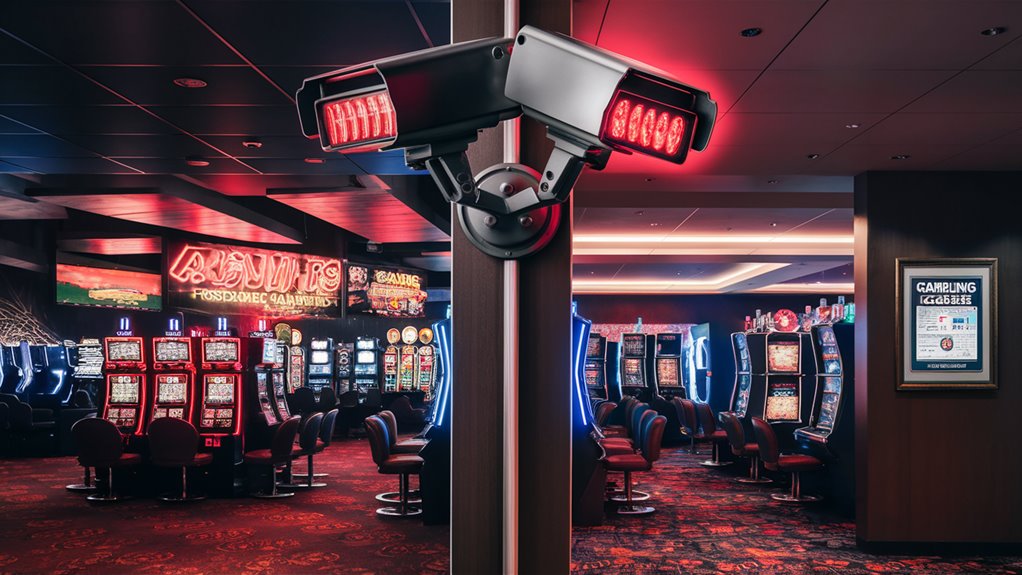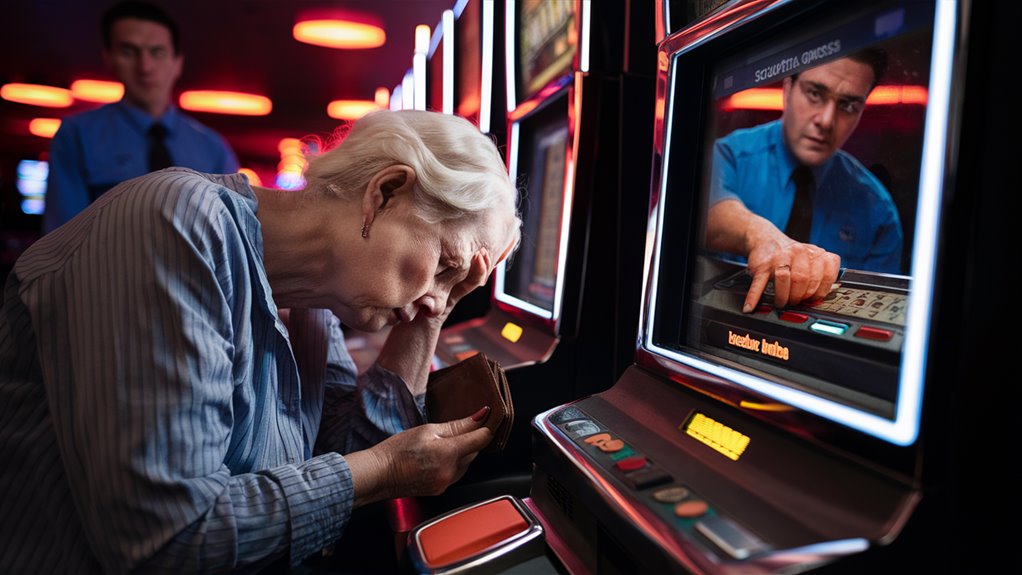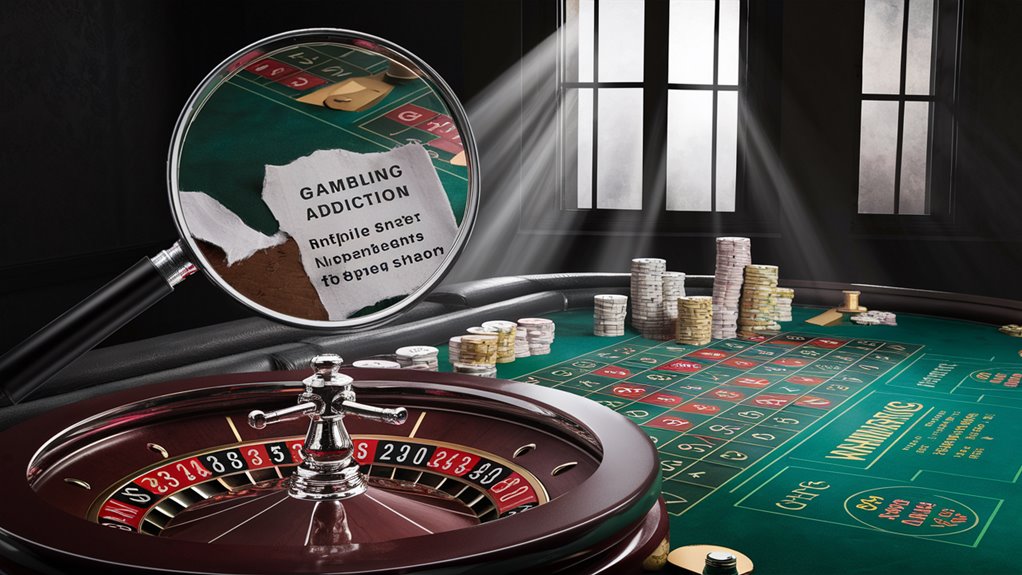Let's talk about why ethical marketing matters so much in the gambling industry. You know how some things just need extra care and attention? Well, this is definitely one of them. When we're dealing with gambling, we're not just talking about business – we're talking about real people's lives.
Think about it for a moment. While many folks enjoy a casual bet or an evening at the casino without any issues, others can find themselves in pretty deep water. It's like walking a tightrope, really. Marketing teams need to balance their need to promote their services while making sure they're not pushing vulnerable people toward harmful behaviors.
The stakes are incredibly high here. We're not just talking about losing a few dollars, but potentially life-changing consequences. Imagine someone spending their kid's college fund or their retirement savings because they couldn't resist that flashy ad or tempting promotion. These aren't just hypothetical scenarios, they're real stories that happen more often than we'd like to admit.
So what makes marketing ethical in this industry? Well, it starts with putting people first. Smart operators understand that sustainable business isn't about quick wins or aggressive promotions. It's about creating a safe environment where people can enjoy gambling responsibly, with clear warnings about risks and easy access to help when needed.
The bottom line? When gambling companies choose to market responsibly, everyone wins. Sure, they might not make quite as much money in the short term, but they're building something much more valuable: a sustainable industry that can provide entertainment without destroying lives. And isn't that worth more than a quick profit?
The Cost of Problem Gambling

Let's talk about the real cost of problem gambling, because it's more complex than most people realize. You know how they say everything comes with a price tag? Well, gambling addiction carries three major ones: financial, social, and psychological costs.
Think about the financial impact for a moment. It starts small, maybe dipping into savings here and there, but before you know it, things can spiral out of control.
Problem gamblers often find themselves drowning in debt, facing bankruptcy, or watching their hard-earned assets slip away. It's like a snowball rolling downhill, getting bigger and more dangerous as it goes, with many turning to desperate measures just to place their next bet.
The social toll? That's where things get really tough. Imagine watching your closest relationships crumble because trust has been broken one too many times.
Families fall apart, marriages end in divorce, and what starts as a personal struggle quickly becomes everyone's problem. Many people lose their jobs too, not showing up for work or spending company time trying to win back their losses.
Pretty soon, they're isolated from the very people who could help them most.
Now for the hardest part to talk about: the psychological impact. Depression and anxiety become unwelcome companions, often bringing substance abuse along for the ride.
It's a lonely place to be, wrapped in shame and guilt, feeling like there's no way out. Sadly, gambling addiction has one of the highest suicide rates among addictive disorders, which really drives home how serious this problem is.
That's why we need to take this seriously and make sure help is available when people need it most.
Building Trust Through Responsible Messaging

Let's talk about building trust in gambling marketing – it's trickier than you might think.
You know how important honest communication is in any business? Well, in gambling, it's absolutely crucial.
Think of it like this: when you're marketing gambling services, you're basically having a conversation with potential players about both the fun and the risks involved.
No sugar-coating here. Instead of making those flashy promises about hitting the jackpot, focus on painting a realistic picture of what gambling actually looks like.
Here's the thing about responsible messaging – it needs to be crystal clear and upfront. Ever noticed those disclaimers in small print?
They should actually be front and center. We're talking about odds disclosures that anyone can understand, clear age restrictions, and easy ways to find help if gambling becomes a problem.
And please, let's steer clear of marketing to vulnerable folks or using language that might trigger someone struggling with gambling issues.
Want to know what really builds trust? Consistency across all your platforms.
Whether someone's checking out your website, scrolling through social media, or reading an email from you, the message should stay the same.
Be open about your responsible gambling policies, share information about self-exclusion programs, and show that you genuinely care about protecting your players.
Remember to keep your ear to the ground, too. When customers raise concerns about your marketing, jump in and address them quickly.
It's not just about following rules and regulations – though that's important. It's about creating an industry that actually looks out for its customers' wellbeing.
Pretty straightforward when you think about it, right?
Regulatory Compliance and Marketing

Let's talk about navigating the tricky world of gambling marketing regulations. You know how it feels when you're trying to promote something but there are a million rules to follow? Well, that's exactly what gambling companies deal with every day.
Think of regulatory compliance like a complex dance routine – you need to know all the right moves and stay in perfect rhythm. Each region has its own set of rules, and getting them wrong can cost you big time, both in fines and potentially losing your license to operate.
Here's what you really need to focus on: Every single ad needs clear messages about responsible gambling and age limits. It's kind of like putting warning labels on cigarette packages, but for gambling.
And just as you wouldn't sell cigarettes near a school, you've got to be super careful about where you place your gambling ads.
Want to stay on the safe side? Set up a solid system for checking everything before it goes live. Your marketing team should be like a well-oiled machine, with every piece of content going through proper legal review.
Keep track of everything – seriously, document where and when each ad runs. Trust me, when audit time comes around, you'll be glad you did.
Being smart about compliance means staying in the loop. Subscribe to industry updates, build relationships with regulators, and maybe invest in some good compliance software.
Think of it as your safety net – it might seem like overkill, but it's way better than dealing with regulatory headaches later.
Protecting Vulnerable Customer Groups

Let's talk about protecting vulnerable people in gambling – it's something we really need to get right. You know how some folks can be more at risk when it comes to gambling?
Well, we need to keep a close eye on young people, anyone struggling with gambling problems, and those dealing with mental health challenges.
Think of it like putting up safety barriers at a dangerous cliff edge. We need strong age checks, kind of like a bouncer at a club, making sure kids can't slip through.
And just as importantly, we've got to create marketing that doesn't catch the eye of teenagers or vulnerable adults.
The real game-changer is having solid self-exclusion programs. It's a bit like having an emergency brake – when someone feels things getting out of control, they can hit pause on their gambling activities.
And these tools shouldn't be hidden away in some dusty corner of your website. They need to be front and center, easy to find and use.
When you're putting together marketing materials, remember this golden rule: never suggest gambling as a way to fix money problems. It's like telling someone drowning to drink more water – it just doesn't make sense.
And we need to be super careful not to trigger recovering addicts with our messaging.
Here's something really important: watching for warning signs. Your marketing team should be like lifeguards at a pool, trained to spot when someone might be in trouble.
Set up systems that can catch early warning signs, maybe when someone's betting patterns suddenly change or they're chasing losses.
Simple things can make a big difference – deposit limits, cooling-off periods, and reality checks. Think of them as friendly reminders that pop up and say, "Hey, maybe it's time for a break?"
Data-Driven Marketing Ethics

Let's talk about something really important in today's digital marketing world – the ethical side of using customer data, especially when it comes to gambling.
You know how collecting customer information has become second nature in marketing? Well, when gambling is involved, we need to be extra careful about how we handle that data.
Think of it like being a responsible bartender. Just as they watch for signs that someone's had too much to drink, we need to keep a close eye on gambling patterns through our data.
It's not just about following the rules – it's about genuinely protecting people who might be vulnerable.
Here's the thing about customer data in gambling: we can't just use it to boost profits.
Instead, we should use these valuable insights to spot early warning signs of problem gambling. Maybe someone's betting patterns have suddenly changed, or they're logging in at unusual hours. These are the kinds of signals we need to pay attention to.
When it comes to marketing campaigns, personalization shouldn't be about pushing people to bet more.
Rather, use that data to tailor responsible gambling messages. For instance, if someone's showing signs of risky behavior, send them helpful resources instead of promotional offers.
It's like having a friend who knows when to say, "Hey, maybe we should take a break."
And let's not forget about privacy. Your customers trust you with their personal information, so treat it with respect.
Regular security checks, clear privacy policies, and transparent communication about data usage aren't just legal requirements – they're the foundation of ethical marketing.
Remember, successful marketing isn't just about the numbers.
It's about building long-term relationships based on trust and responsibility. By putting ethical data practices first, you're not just protecting your customers, you're protecting your business too.
Social Impact of Gambling Advertising

Let's talk about how gambling ads are shaping our society these days. You know how it seems like everywhere you turn, there's another betting commercial or sports sponsorship?
From scrolling through social media to watching your favorite team play, gambling promotions have basically become part of our daily landscape.
Think about it – when was the last time you watched a sporting event without seeing at least one gambling-related message?
These ads aren't just selling a product, they're quietly reshaping how we view betting as a society. The tricky part is how they make gambling look so harmless and fun, almost like it's just another form of entertainment, right up there with going to the movies or grabbing dinner with friends.
What really gets concerning is how these messages affect different groups of people.
Young people, who are growing up seeing gambling everywhere, might start thinking it's totally normal and risk-free.
And for folks who are already struggling with gambling problems? Well, these constant reminders can make their recovery journey so much harder.
The ripple effects go way beyond individual choices. When communities are bombarded with messages about how gambling leads to excitement and quick money, it changes how everyone thinks about betting.
Research backs this up, showing that aggressive marketing actually pushes more people, especially young adults, to give gambling a try.
Here's the thing – each billboard, every commercial break, and all those sponsorship deals aren't just marketing moves.
They're potential turning points in someone's life, maybe pushing them toward choices that could affect their savings, relationships, or mental health. We really need to think hard about where we draw the line with this kind of advertising.
Industry Self-Regulation Best Practices

Let's talk about industry self-regulation in gambling – it's not just about doing the right thing, it's actually smart business sense.
Think about it like building a house: you want a solid foundation that goes beyond just meeting basic building codes, right?
Starting with the basics, every good operator needs clear policies that protect players. This means training your staff properly, watching out for signs of problem gambling, and putting solid safeguards in place.
It's kind of like being a good bartender who knows when to cut someone off, but with more sophisticated tools at your disposal.
When it comes to advertising, you've got to play it smart. No targeting kids or vulnerable people, and always be upfront about the odds.
Remember, transparency builds trust, and trust keeps customers coming back.
Here's something crucial: age verification and betting limits need to be rock-solid. Think of it as having a really good bouncer at a club, but instead of checking IDs at the door, you're using high-tech systems to keep things safe.
And if someone needs to take a break? Make it easy for them with self-exclusion programs.
You know what's really important? Keeping track of how well these measures work. Regular check-ups and adjustments are key, just like maintaining any other business system.
Try connecting with addiction treatment providers too – they've got insights that could really help your operation.
Don't forget to document everything you're doing. It's like keeping a diary of your self-regulation efforts, which comes in handy when you need to show stakeholders you're on top of things.
And invest in good tech – it's your best friend when it comes to spotting potential problems early and stepping in to help.
Marketing Transparency and Consumer Protection

Let's talk about honesty in gambling marketing – it's more than just following rules, you know? It's really about giving players the whole picture so they can make smart choices about their gambling.
Think about it like this: when you're planning to spend your money, you want to know exactly what you're getting into, right? That's why we need to be upfront about everything – the odds, the risks, and yes, even the possibility of losing money. No sugar-coating or making empty promises about guaranteed wins.
Here's something crucial – those terms and conditions for bonuses and promotions? They shouldn't be hiding in tiny print that needs a magnifying glass to read.
Everything should be crystal clear and easy to find, from age requirements to warnings about gambling risks. It's like having all your cards on the table, so to speak.
You know what's really important? Making sure marketing never takes advantage of vulnerable people or plays with psychological triggers that might lead to problem gambling.
Instead, let's focus on giving people the real scoop – actual statistics about winning chances and straightforward explanations of how games work.
And hey, it's not just about ticking boxes on a compliance checklist. Regular checks of your marketing materials help ensure you're not just meeting legal requirements but also staying true to ethical standards.
When you're honest with your customers, you build trust that lasts. It's pretty simple, really – good business is honest business.
Think of it as building a foundation for long-term success. By being transparent about everything, you're not just protecting players – you're creating a sustainable business that people can trust.
And in the gambling industry, trust is worth its weight in gold.
Long-Term Brand Value Strategy

Let's be real about building a lasting brand in the gambling industry. You know it's not just about quick wins and flashy promotions, right?
Think of it like building a house – you need a solid foundation that'll weather any storm.
You might wonder what makes players stick around for the long haul. Well, it comes down to trust, and that starts with showing genuine care for your customers.
When you put responsible gambling first, offer clear, honest communication, and skip those aggressive marketing tactics, something interesting happens – players notice and remember.
Picture this: you're a player choosing between two gambling sites. One bombards you with promises of easy money, while the other provides tools to help you stay in control and openly discusses the risks. Which one feels more trustworthy? That's exactly what we're talking about.
Real success in this industry isn't just about the numbers on your quarterly report. It's about building something meaningful and sustainable.
Try partnering with addiction support groups, getting those responsible gambling certifications, and actually following through on your promises. Today's players are pretty savvy, you know. They can spot the difference between genuine concern and just checking boxes.
In our hyper-connected world, your reputation can spread like wildfire, good or bad. So before you launch that next marketing campaign, ask yourself: "Does this align with who we want to be five, ten years down the road?" Because at the end of the day, the brands that last are the ones that put their players' wellbeing first.
Common Questions
How Do Ethical Marketing Practices Affect Gambling Operators' Profit Margins?
Let's talk about the real impact of ethical marketing on gambling operators' bottom line. You might think doing the right thing means sacrificing profits, but it's not that simple. Sure, ethical marketing practices could mean fewer quick wins in the short run, but here's where it gets interesting.
Think of it like building a house – you can throw it up quickly with cheap materials, or take time to create something that lasts. When gambling operators invest in responsible practices, they're actually setting themselves up for long-term success. They build genuine trust with their customers, avoid costly regulatory headaches, and create a sustainable business model that keeps bringing in steady revenue.
Consider this: customers who feel protected and respected are more likely to stick around. They'll recommend your platform to others, spend within their means, and become loyal players rather than one-time big spenders who might run into trouble. Plus, with increasing regulatory scrutiny in the gambling industry, staying ahead of compliance requirements just makes good business sense.
The numbers might not look as flashy in quarterly reports, but ethical marketing creates something far more valuable – a reputation for integrity that pays dividends year after year. It's about playing the long game, where responsible practices lead to more stable, predictable revenue streams and fewer regulatory fines eating into those profit margins.
What Role Do Influencers Play in Responsible Gambling Marketing Campaigns?
Let's be real about how influencers are shaping responsible gambling these days. When you scroll through social media, you'll notice more and more content creators opening up about gambling in refreshingly honest ways. They're not just promoting games or betting sites, they're actually starting important conversations about staying safe while gambling.
You know what's interesting? These influencers are particularly good at connecting with younger audiences who might not pay attention to traditional gambling awareness messages. They share their own ups and downs with betting, give practical tips for setting limits, and talk openly about the risks involved.
Some influencers even take it a step further by creating content that shows what responsible gambling really looks like in everyday life. Think about things like setting strict budgets, knowing when to step away, or using betting limit tools. These aren't just dry safety tips, they're real stories from people who've been there.
The best part? When influencers talk about responsible gambling, it feels more like getting advice from a friend than listening to a lecture. They're bridging the gap between gambling operators and younger players, making sure important safety messages actually get heard and understood.
Can Ethical Marketing Help Reduce Stigma Associated With Legal Gambling Activities?
Let's dive into how ethical marketing can help shift perceptions about legal gambling. You know how certain activities can get an unfair reputation? Well, responsible gambling is one of them. When marketing takes an ethical approach, it actually helps people see legal gambling for what it really is – a form of entertainment that, when enjoyed responsibly, can be just like going to the movies or attending a sports event.
Think about it this way: when casinos and betting platforms focus on transparency, showing exactly how their games work and what the odds are, it builds trust. It's like a restaurant being upfront about its ingredients – you feel more confident about what you're getting into.
The key is highlighting the entertainment value while being crystal clear about responsible gaming practices. Instead of flashy promises of instant riches, ethical marketing shows real people enjoying themselves within their limits, maybe spending an evening at a regulated casino with friends or placing thoughtful bets on their favorite sports team.
This approach naturally helps break down those old stereotypes. When people see gambling presented honestly, with clear safety measures and responsible gaming tools in place, they're more likely to view it as just another recreational choice rather than something shadowy or problematic. Plus, when marketing emphasizes the regulated, professional environment of legal gambling venues, it helps distinguish them from unlicensed alternatives.
How Do Cultural Differences Impact Ethical Gambling Marketing Across Different Countries?
You know, it's fascinating how gambling marketing looks completely different depending on where you are in the world. Take Las Vegas and Dubai, for instance – two cities with totally opposite approaches. While Vegas lights up the desert with flashy casino billboards, you won't find a single gambling ad in Dubai, where religious values shape marketing restrictions.
Let's break this down a bit. In some Asian countries, like Japan, pachinko parlors advertise themselves as entertainment centers, carefully dancing around gambling terminology. Meanwhile, Australian TV channels run betting odds during sports matches like it's just another part of the game.
Cultural values really drive these differences. British audiences might see gambling as a casual weekend activity, with friendly betting shop ads on high streets. But hop over to Thailand, where Buddhist principles influence marketing rules, and you'll find a much more subdued approach, focusing on state-sponsored lotteries.
Local laws and social norms create this interesting patchwork of marketing styles. Some countries treat gambling ads like they do cigarette commercials – with strict warnings and limitations. Others view it as just another form of entertainment, like movie promos or restaurant ads.
The whole thing really shows how what's perfectly normal in one place might raise eyebrows in another. Think about it – a billboard that would fit right in on the Las Vegas Strip would probably cause quite a stir in more conservative regions.
What Technologies Are Emerging to Improve Ethical Marketing in Gambling?
Let's talk about the exciting new technologies that are making gambling marketing more ethical and responsible. You know how the industry has gotten a bit of a bad rap over the years? Well, things are actually changing for the better.
These days, we're seeing some pretty impressive tools emerge. Take AI-powered responsible gaming systems, for instance. They're like having a smart friend looking out for you while you play, catching any concerning patterns before they become problems.
Blockchain technology is another game-changer. It's bringing unprecedented transparency to the table, making it easier for players to trust the system and for operators to prove they're playing fair. Think of it as a digital ledger that keeps everyone honest.
Ever noticed how strict age verification has become? That's thanks to new biometric systems that can spot underage players from a mile away. No more fake IDs sneaking through the cracks.
Then there's the clever risk detection software that creates a unique profile for each player. It's like having a personal guardian angel that notices if your playing habits start heading in a worrying direction.
Real-time behavior tracking rounds out the picture, helping operators spot potential issues as they happen, not after the fact. It's all about prevention rather than cure, you know what I mean?
These innovations aren't just fancy tech – they're creating a safer, more responsible gambling environment for everyone involved.
